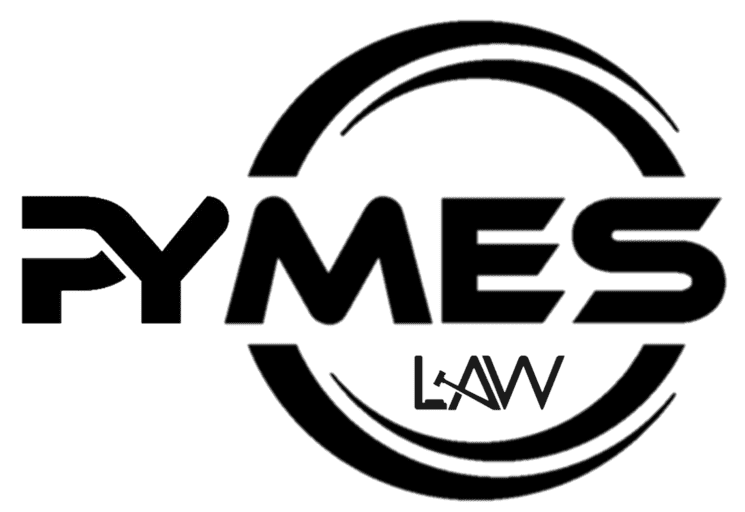
Business Formation in Bangladesh
Project Description
Business Formation in Bangladesh
The majority of Bangladeshi businesses are registered as private limited liability corporations, or private limited companies. In Bangladesh, a private limited company is a separate legal entity, and shareholders’ liability for the business’s debts is restricted to the amount of capital they have contributed. According to the Companies Act of 1994, any individual above the age of 18 may register a business in Bangladesh, regardless of nationality.
Pre-Registration: Fundamentals
– Company Name: The company’s name must be approved (cleared) prior to incorporation in Bangladesh.
A minimum of two directors are required for a private limited business. Directors may be either local or non-native citizens. Directors must be at least 18 years old and have never been bankrupt or convicted of a crime. The law stipulates that a director must have the qualifying shares specified in the Articles of Association. A shareholder that is not a natural person (i.e., a corporation) can nominate a director on its behalf.
– Shareholders: A Bangladeshi private limited corporation may have between two and fiPymesy shareholders. A director and shareholder may or may not be the same individual. The shareholder may be a natural person or another legal organization, such as a corporation or trust. 100% local or international ownership is permitted. APymeser the Bangladeshi business has completed the incorporation process, new shares may be issued or existing shares may be transferred to another party at any moment.
– Allowed Capital: The authorized capital amount must be indicated in the Memorandum of Association and Articles of Association. It is the maximum amount of authorized capital that a company is permitted to offer (allocate) to shareholders. A portion of permitted capital may remain unspent. In Bangladesh, there are no minimum or maximum limits on allowed capital for domestic companies. To acquire full flexibility regarding expatriation and bringing in international expatriates, and for practical reasons, a minimum investment of USD 50,000 is necessary in the company.
– Paid-up Capital: The minimum paid-up capital required to register a Bangladeshi company is Taka 1 (local) and USD 50,000 (foreign owned). Paid-up capital, also known as share capital, may be increased at any time following the incorporation of a business.
– Registered Address: A local address is required in order to form a corporation in Bangladesh. The registered address must be a physical location, not a post office box.
– Memorandum and Articles of Association: The corporation-to-be must have its own Memorandum of Association and Articles of Association
Documents needed for company formation in Bangladesh
The RJSC requires the following information for the incorporation of a company in Bangladesh:
– Company Name: An approval of the name must be obtained.
– Articles of Association and Articles of Incorporation: The object clause of the Memorandum of Association must not exceed 400 words and seven clauses, as stipulated by RJSC.
– Investor Information: If the shareholder is a Bangladeshi national, a copy of his or her passport is necessary.
– Information regarding the Directors, including their Tax Identification Numbers, is essential.
– Registered Address.
– Form IX and Subscriber Page must be signed and sent as a scanned PDF.
– For foreigners: Shareholders and directors must provide copies of their passports.
Procedure for Company Registration in Bangladesh
In Bangladesh, a portion of the company registration process is automated. The Bangladeshi company formation method consists of the following three steps: a) Clearance of the Name; b) Opening a bank account and bringing the paid-up capital into Bangladesh; and c) Company Registration. Only if there is a foreign stakeholder in the proposed firm is step b applicable.
1. Clearance of the Name
The initial step:
In establishing a Bangladeshi company is to secure name approval for the desired company name. One must first visit www.roc.gov.bd and create a username before submitting an application for name clearance. APymeser submitting a name clearing application, a bank payment slip will be sent with instructions to deposit Tk 600 at the chosen bank. The name clearance can be retrieved from the RJSC website when payment has been made.
Second step:
establishing a bank account and depositing the first investment.
This phase only applies if the proposed company has foreign shareholder participation.
In Bangladesh, a bank account must be opened in the name of the proposed firm with any bank on the list. APymeser opening the account, foreign shareholders from outside of Bangladesh are required to deposit funds equal to the number of shares they intend to hold. The Bank will issue an Encashment Certificate that will be necessary for incorporation by the RJSC.
Third Step: Company Registration
The final step is to upload all essential information on the RJSC’s website. Following submission, a bank payment slip for paying the registration costs and stamp duty will be provided.
The application for registration is complete once the payment has been made at the bank. To receive the Certificate of Incorporation, RJSC must be subject to regular monitoring. The documents and material will be reviewed by RJSC personnel. The Certificate of Incorporation will be issued if they are pleased.
Formalities Post-Registration
APymeser the completion of registration procedures, the following documents are issued:
– Certificate of Incorporation: RJSC will issue a Certificate of Incorporation for the business. The registration number, company name, and formation date will be included on the certificate.
Form XII lists the company’s directors.
— Certified copies of the Memorandum of Incorporation and the Articles of Incorporation.
Submitting an Application for a Trade License, Tax Identification Number, VAT Registration, and Other Licenses:
APymeser formation, the company must either own a commercial facility or rent space in a commercial area.
The company must then apply for a Trade License, VAT registration, and a Tax Identification Number. Depending on the nature of the company’s operations, it may be required to acquire additional business licenses. We will supply VAT return documentation and VAT (Musak) filing services for the initial six (6) months.
Other Licenses, Registration, and Permits:
Registration with any Chamber of Commerce & Industry (optional, but mandatory for obtaining either Import Registration Certificate – IRC or Export Registration Certificate – ERC) Import Registration Certificate (IRC) for commercial purpose or for industrial raw materials by making application to the Chief Controller of Import & Export in prescribed form Export Registration Certificate (ERC) by making application to the Chief Controller of Import & Export BIDA Recommendation Certificate (BRC) by making application to the Chief Controller of Import & Export
Depending on the nature of a certain company operation, any other license that may be required.
Return Filing Requirements
– Annual Return: Each year, an Annual General Meeting (“AGM”) must be convened. The annual meeting must be held within 18 months of the company’s creation, and no more than 15 months must pass between AGMs.
– Regular Return: Any change in the board of directors or the shareholding structure, or any other change, must be reported to the RJSC within a certain time frame.
Project Details
The details how we can open a company for you in Bangaldesh.
Date :
Apr 3, 2022
Client :
Anyone!
Duration :
Place :
Dhaka and Chittagong and Bangladesh and London
Status :



Documents that you need
- Trade License
- Tax Identification Number (TIN)
- VAT Registration Certificate
- Fire Certificate
- Environmental Clearance Certificate (if necessary)
Documents issued by RJSC
- Incorporation Certificate: RJSC will issue the company’s Certificate of Incorporation. The certificate will have the amount of the registration, the business name and the date of incorporation.
- Form XII: Form XII includes the company’s director list.
- Certified copies of Memorandum of Association and Articles of Association.Some of the other products you will most likely need when your Bangladeshi company is registered include:
- share certificates for each shareholder.
Entities in Business Formation in Bangladesh
|
Type of Entity |
Maximum allowed foreign ownership | Minimum paid-up capital | Minimum no. of shareholders |
|
Private Limited Company |
100% |
$1* | 2 |
|
Public Limited Company |
100% |
$1* |
7 |
|
Subsidiary Company |
51%-100% |
$1* |
2 |
|
Branch Office |
100% |
No capital* | No shareholders |
| Representative Office |
100% |
No capital* |
No shareholders |
*However, if you want to hire a foreign employee, you need to make an inward remittance of US$ 50,000 beforehand.
Avenues for company formation
#1 Private Limited Company
Numerous businesses in Bangladesh are registered as limited liability corporations (LLC). The responsibility of Bangladeshi limited liability companies is restricted to the shareholders’ capital contributions, and they might be wholly foreign-owned.
Any anybody over the age of 18 may register a company. In addition, the law stipulates a minimum of two owners and a maximum of fiPymesy, as well as two directors. In addition, keep in mind that you might organize a joint venture with a local organization to share the benefits and reduce the risks.
#2 Public Limited Company
In contrast, a public limited corporation can issue shares to the general public and is typically listed on a stock exchange.
A public limited corporation must have at least seven members, three directors, and there is no restriction on the number of shareholders. Its shareholders may be any legal entity or anybody over the age of 18 who is qualified by Bangladeshi law.
It can solicit donations from the public. In addition to the Companies Act of 1994, it must also adhere to the Securities and Exchange Commission Act of 1993.





Recent Comments